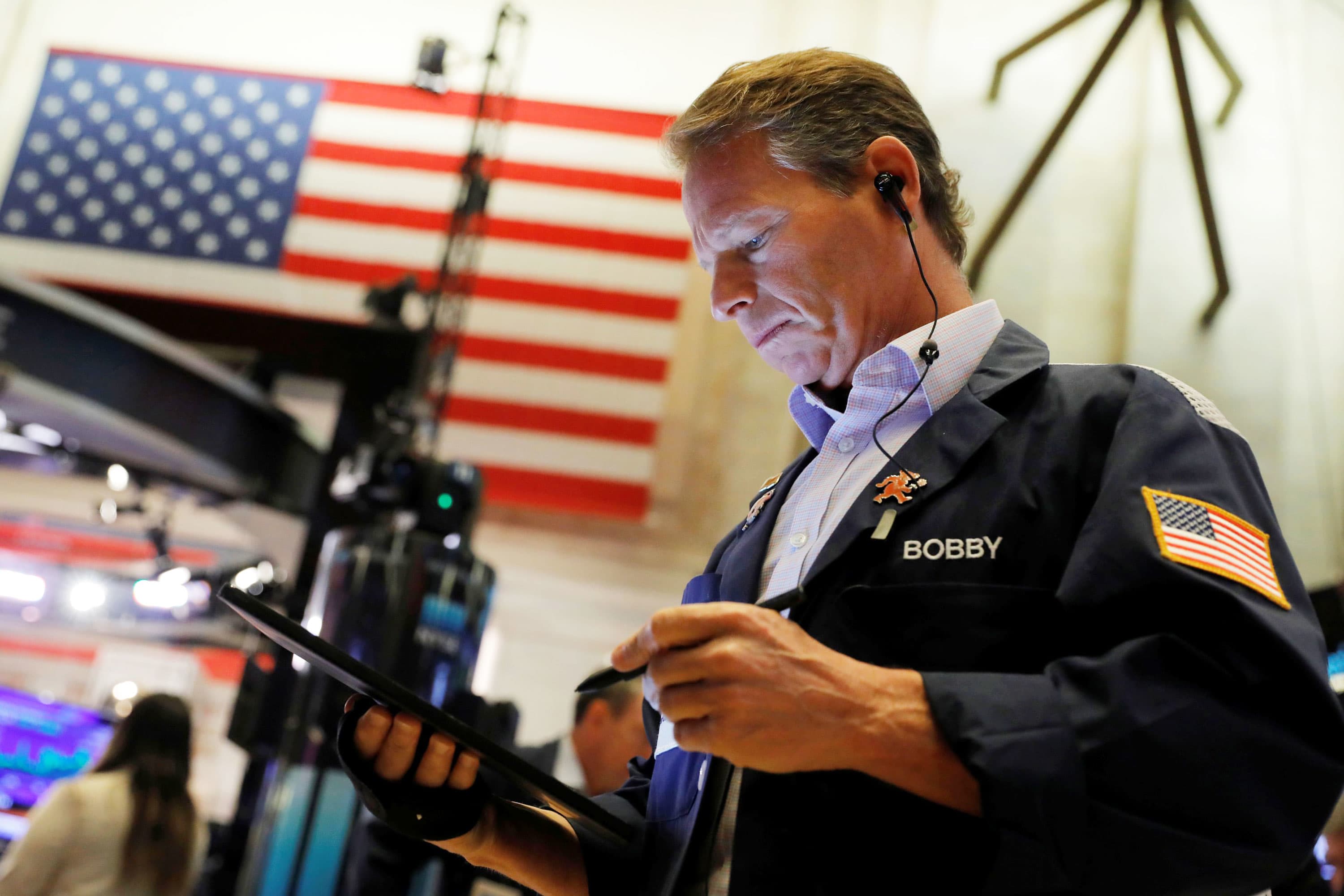Stock futures are mostly lower after Dow closes at record Friday

A trader works on the trading floor at the New York Stock Exchange (NYSE) in New York, August 5, 2021.
Andrew Kelly | Reuters
Stock futures traded mostly lower early Monday after the Dow Jones Industrial Average notched a record close Friday following a stronger-than-expected jobs report.
Futures tied to the Dow fell 83 points, or 0.2%. S&P 500 futures lost about 0.1%. Nasdaq 100 futures were about flat.
Tesla shares gained 1% in premarket trading after Jefferies upgraded the stock and predicted a rally of more than 20% over the next 12 months.
The moves in futures trading came after the Dow rose 144.26 points, or 0.4%, to close at an all-time high of 35,208.51. The S&P 500 rose 0.17% to reach its own record close of 4,436.52. The Nasdaq Composite bucked the trend, dipping 0.4% to 14,835.76. All three major indexes ended the week higher and saw their second positive week in three.
The Labor Department’s jobs report Friday showed the U.S. economy added 943,000 jobs in July. Economists expected 845,000 new jobs last month, according to Dow Jones estimates. The unemployment rate dropped to 5.4%, below the expectation of 5.7%.
“You saw a lot more jobs being created in those areas that are reopening — restaurants, hotels, logistics, transportation,” Raymond James Chief Investment Officer Larry Adam said. “That’s a good sign. I think that puts more spending power behind the consumer going forward and I think that that’s ultimately a good thing for the economy.”
However, the signs of a strong economic recovery could prompt the Federal Reserve to pull back its monetary support measures and prepare to begin tapering its bond-buying program.
“If it does continue to this magnitude, that probably does bring the Fed a little sooner into the game when it comes to tapering,” Adam said.
U.S. senators reconvened Sunday to work toward the passage of a $1 trillion infrastructure bill, a top political priority of President Joe Biden. The bipartisan package is expected to have sufficient Republican support to pass this week in the Senate and move to the House for consideration in September.
The yield on the benchmark 10-year Treasury note jumped as high as 1.3% after the better-than-expected jobs report. The 10-year yield this summer has pulled back significantly from its highs in March, when it neared 1.8%. So far on Monday, the 10-year yield was stable, little changed at around 1.28%.
The financial sector led gains Friday as rates edged up, increasing banks’ profitability prospects. Industrials, retailers and energy stocks also moved higher as the strong jobs report eased concerns about the economic recovery.
Meanwhile, technology stocks retreated after the jump in rates. Rising rates discount the value of future earnings and therefore can hit growth stocks like technology names particularly hard.
Investors are awaiting key inflation data scheduled for release this week. The consumer price index and the producer price index are scheduled to come out Wednesday and Thursday, respectively.
Several Fed officials are scheduled for speaking appearances in the week ahead, with investors listening with a close ear for insights into the central bank’s tapering decision making. Atlanta Fed President Raphael Bostic, Richmond Fed President Thomas Barkin, Chicago Fed President Charles Evans and Kansas City Fed President Esther George are all set to speak this week.
Companies including Tyson Foods, AMC Entertainment, Coinbase, Lordstown Motors, Bumble, Palantir, Disney, Airbnb and DoorDash are set to report quarterly earnings this week.




